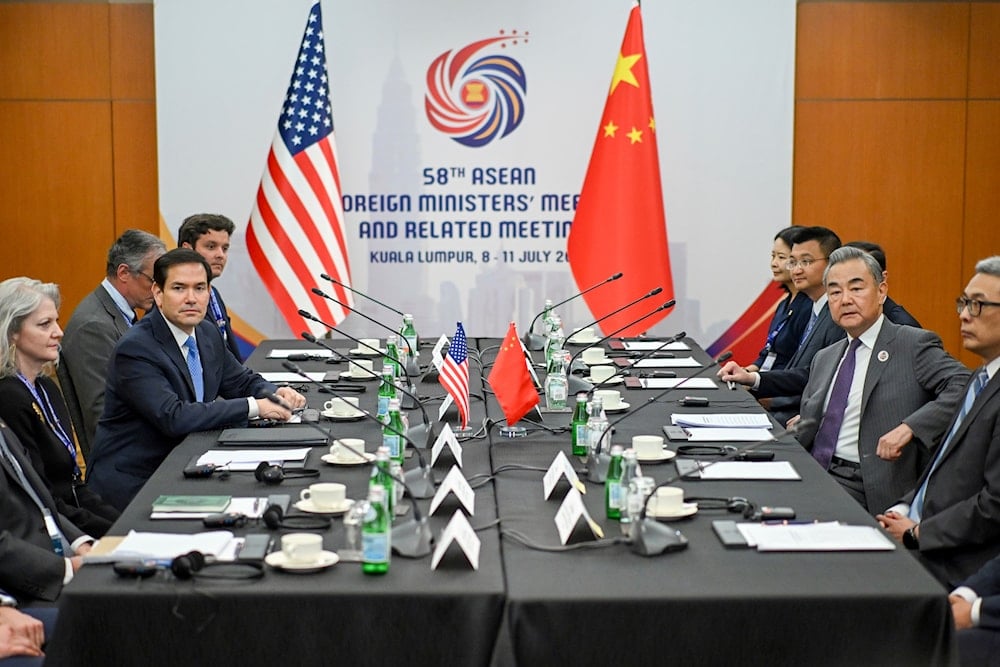US, China to resume talks in Madrid; tariffs, TikTok on agenda
US and Chinese officials are set to meet in Madrid for trade war talks, addressing tariffs, TikTok national security, and inflation concerns ahead of a looming deadline.
-

US Secretary of State Marco Rubio meets with China's Foreign Minister Wang Yi during the 58th ASEAN Foreign Ministers' meeting and related meetings at the Convention Centre in Kuala Lumpur on Friday, July 11, 2025 (AP)
Representatives from the United States and China are scheduled to convene in Madrid on Sunday to engage in a fourth round of negotiations to prolong the truce in the trade war initiated by US President Donald Trump against Beijing.
Earlier this year, the trade war rattled the global economy, though relations eventually stabilized following a series of temporary truces; however, with the latest suspension of US tariffs on Chinese imports scheduled to end in November, officials from both nations are now under significant pressure to prevent a further deterioration in relations.
A statement from the Treasury Department outlined that the talks would center on a range of mutual concerns in the areas of national security and economic trade, including the status of TikTok and potential collaboration on money-laundering networks that pose a threat to both nations.
According to China's state media agency Xinhua, the two sides would discuss a range of economic and trade issues that include the unilateral tariff measures imposed by the US, the perceived abuse of export controls, and the ongoing situation regarding TikTok.
Trump's tariffs have added further pressure to the already high inflation, and with the Federal Reserve expected to cut interest rates this week in a move aimed at stimulating economic growth, there is a possibility that this action could also contribute to a further increase in inflation.
Treasury Secretary Scott Bescent will lead the negotiations on behalf of the United States, while the Chinese side will be led by its Vice Premier for Economic Policy, He Lifeng.
Trump's tariffs backfire on him
Recent reports show that despite Trump's insistence that his tariff policy will bring manufacturing to the United States, his strategy ultimately backfired, and more companies are reassessing their strategies with a focus on China.
According to a July survey released by the US-China Business Council, although some companies are reassessing their investment strategies, approximately two-thirds of US firms operating in China intend to maintain or even expand their investments.
“Simply put, we’re trapped,” founder of LA-based Starlux Games Judd King told POLITICO, adding that “There’s no ‘wait and see’ anymore. It’s just we have to pay [the duties].” King's company relied on LED components manufactured in China.
Trump’s tariffs, which target major manufacturing countries including Vietnam, India, and Indonesia, and reach up to 145%, have driven up import costs for major retailers, forcing companies like Walmart and Target to raise consumer prices significantly.
Even companies that have attempted to diversify their supply chains through the "China-plus-one" model by sourcing from neighboring countries are now confronting high import duties, as many of these alternative nations have become subject to tariff rates that are nearly equivalent to those imposed on China.

 3 Min Read
3 Min Read








